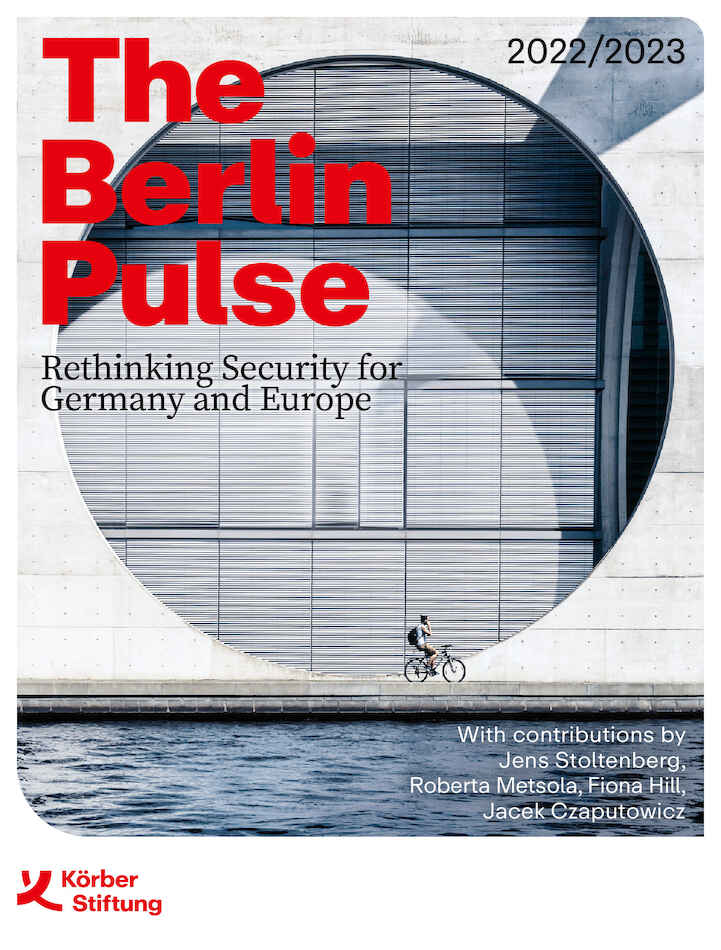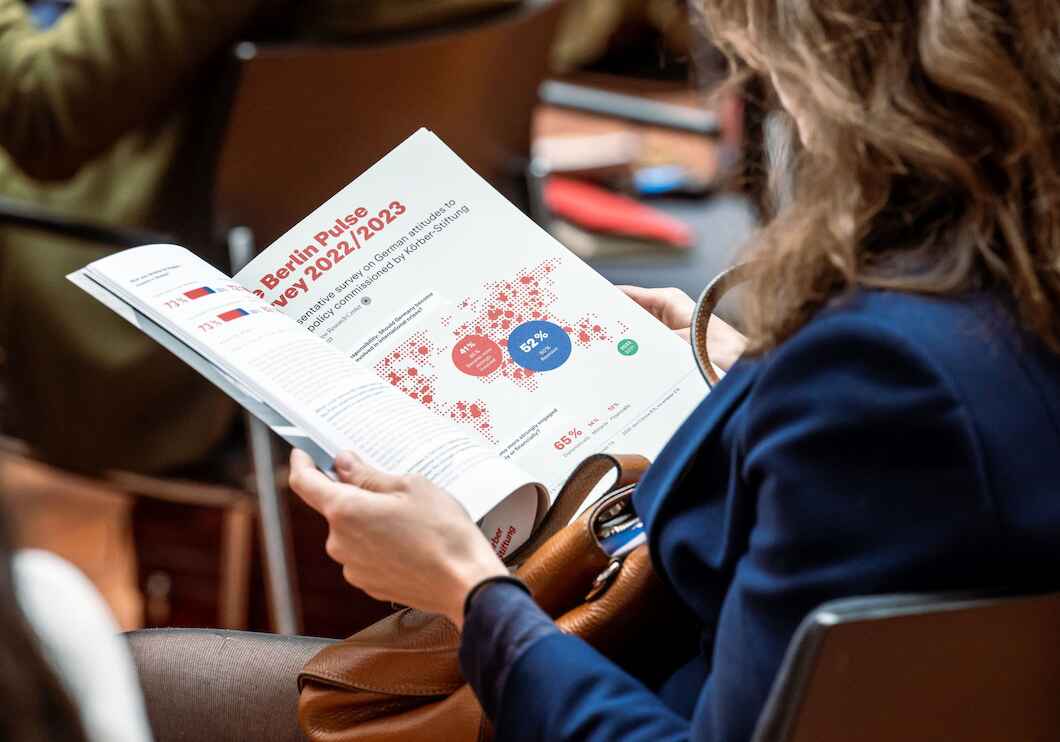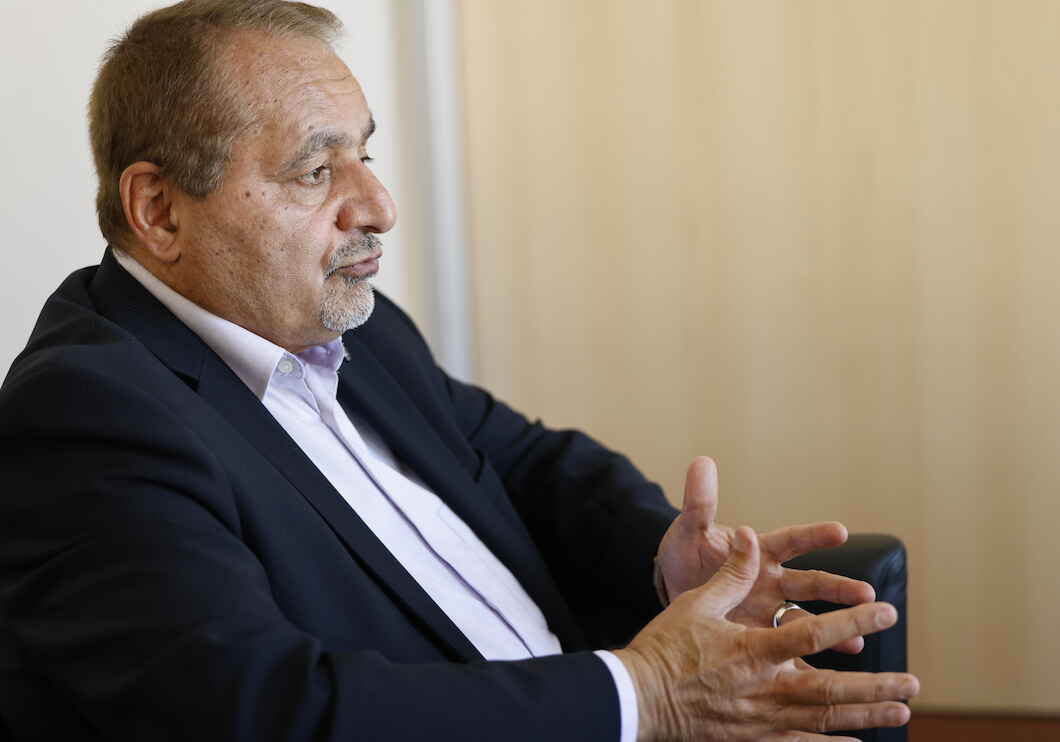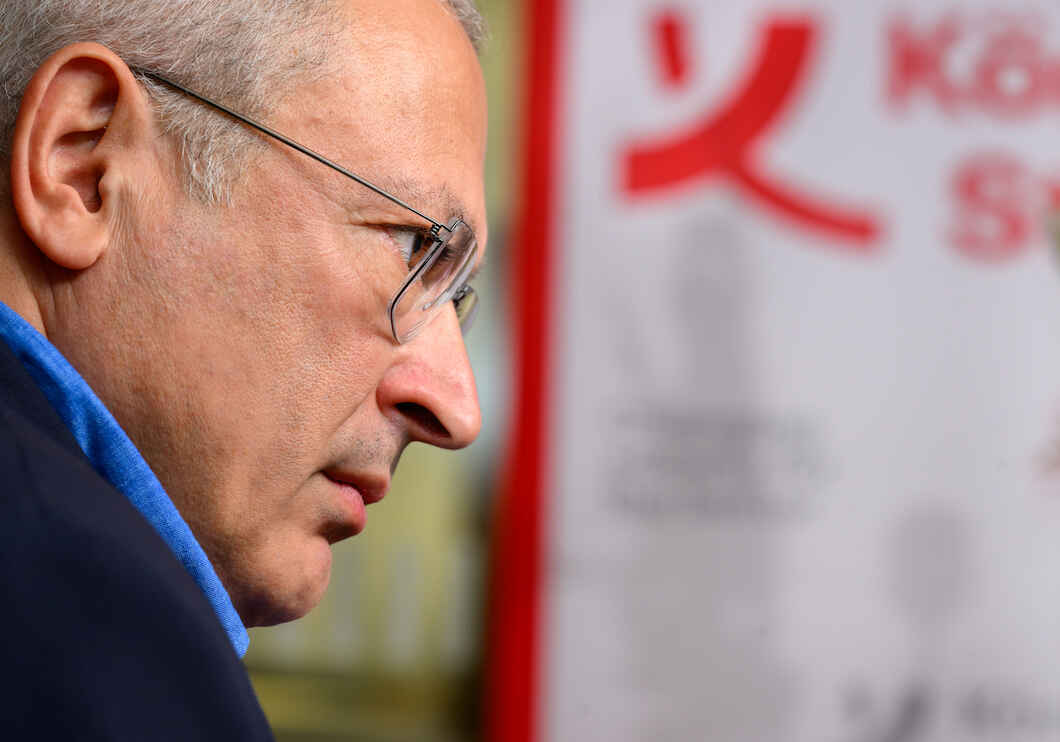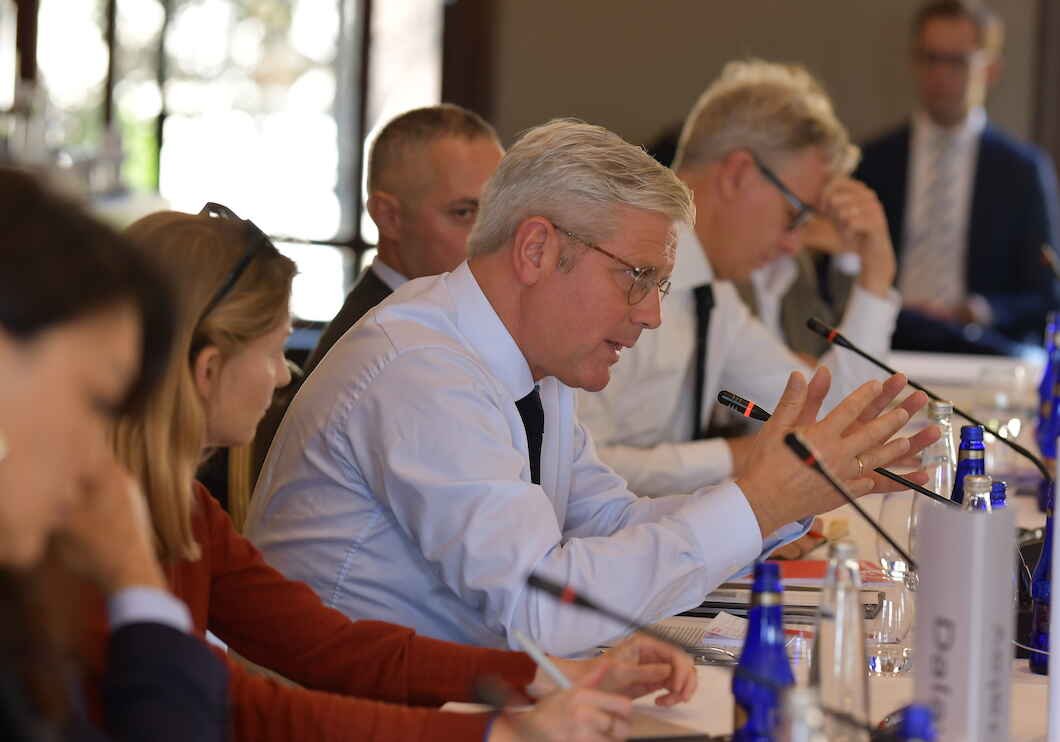
Photo: Unsplash.com/Lysander Yuen
The Berlin Pulse 2022/23
Rethinking Security for Germany and Europe
What do Germans und US citizens think about the most pressing foreign policy issues? Here are the highlights of this year’s public opinion survey, addressing Germany’s international role, biggest challenges and most important partners.
Download the publication with all survey results, essays and interviews here:
“Contrary to claims that the German public needs to understand that a more militarized Germany will also lead to a more secure Europe, one should rather embrace its scepticism and reframe it as a strength for foreign policymaking. Could there be a better leading military power in Europe than one that can rely on its public as a critical supervisory body?”
Julia Ganter
Editor, The Berlin Pulse, Körber-Stiftung
A majority of Germans (52 per cent) still want Germany to show more international restraint. On the other hand, 41 per cent of those surveyed are in favour of Germany becoming more involved – but this involvement should preferably be diplomatic (65 per cent) rather than military (14 per cent) or financial (13 per cent). This means that the attitude of Germans has hardly changed compared to the previous year (2021: 50 per cent in favour of restraint) – regardless of Russia’s invasion of Ukraine and the “historical turning point” in German foreign and security policy proclaimed by Chancellor Scholz.
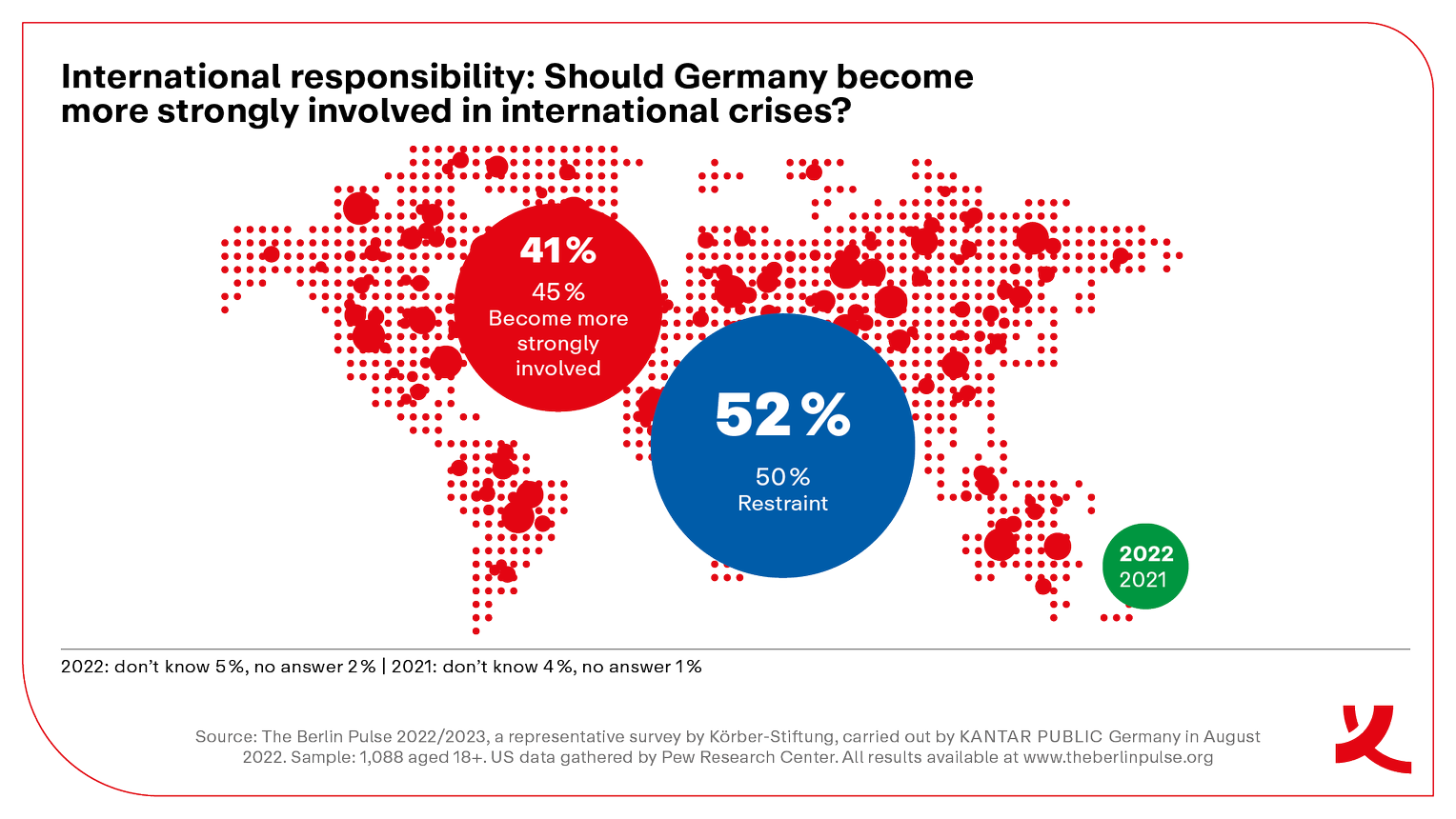
Although 68 per cent of the population reject a leading military role for Germany in Europe, there is at the same time a willingness to expand Germany’s own military capacities: 60 per cent of those surveyed are in favour of permanently higher defence spending.
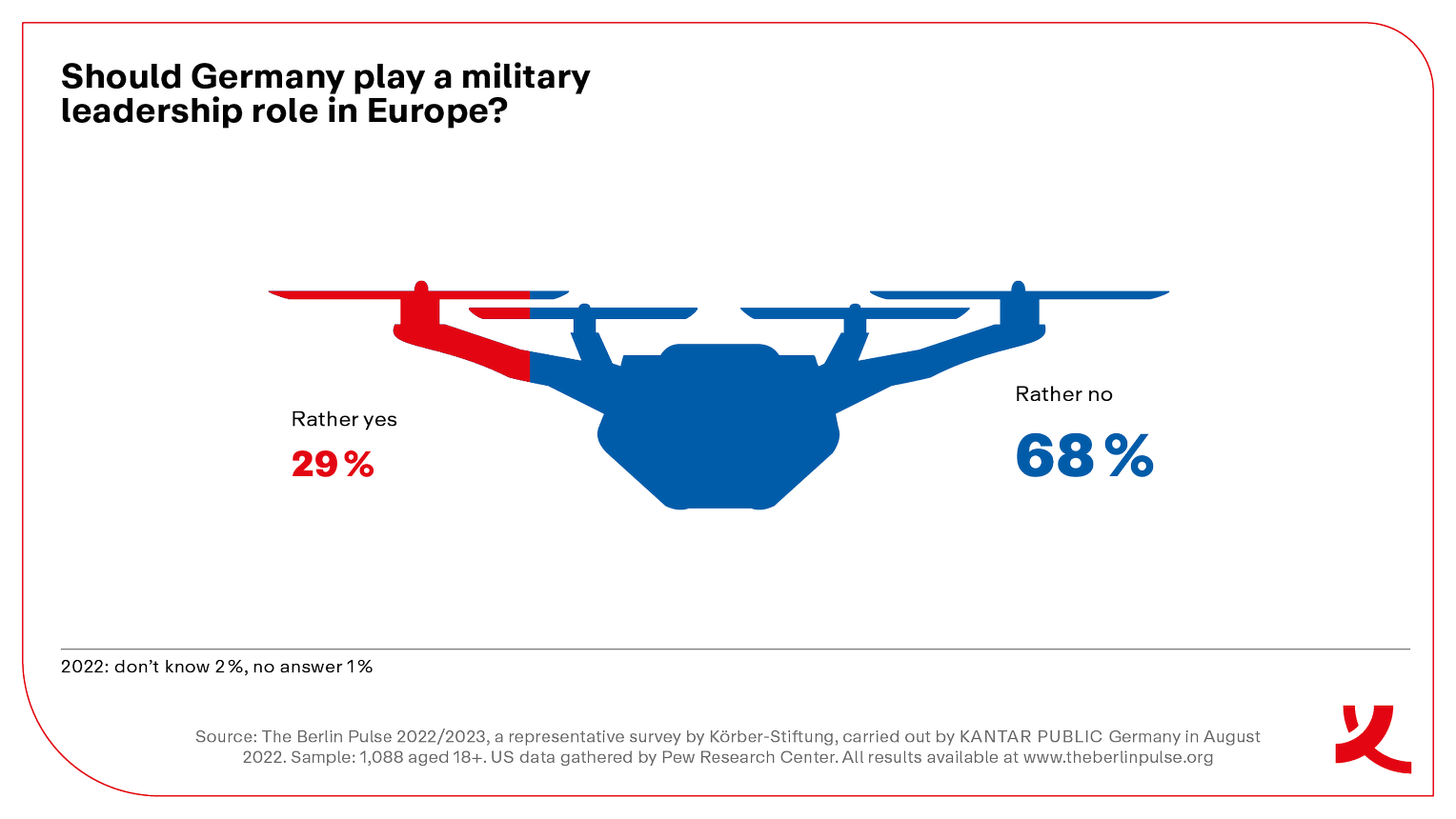
More than two-thirds (69 per cent) of Germans are worried about a Russian nuclear strike, 80 per cent about an expansion of the war to the NATO alliance area. Furthermore, 72 per cent see Russia as a military threat to Germany’s security.
When asked about the greatest challenges currently facing German foreign policy, Ukraine is mentioned most frequently with 45 per cent; Russia and Putin account for another 10 per cent of the mentions as the greatest challenge. The energy crisis is the second most frequently cited challenge for Germany’s foreign policy (20 per cent of respondents). 60 per cent of respondents believe that not enough is being done in Europe to become independent of Russian energy supplies.
Nevertheless, for the majority of Germans it is irrelevant where the energy for the production of electricity and other products comes from. 55 per cent of respondents believe that it should be sourced from all states, 38 per cent want to buy energy only from democratic states. In the USA, a larger proportion of the population (48 per cent) is in favour of sourcing energy only from democratic states.
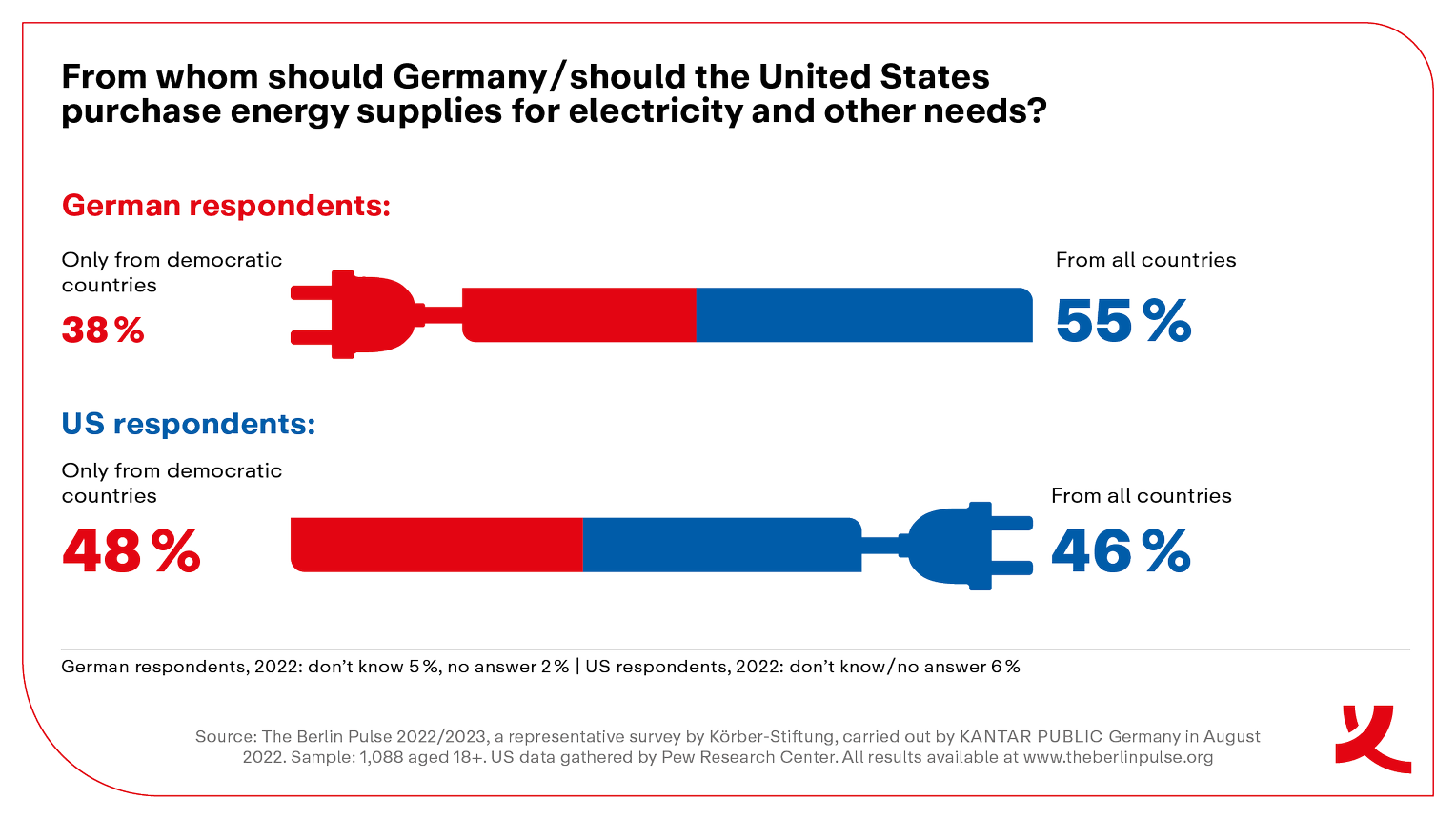
Almost two years after US President Biden took office, the positive trend in transatlantic relations continues . Germans and Americans consistently rate relations as very positive. A clear majority of US citizens (81 per cent) rate German-American relations as “good” or “very good”. 82 per cent of Germans see the transatlantic relationship in a “good” or “very good” condition. The USA also remains the most important partner for Germans (36 per cent), ahead of France (32 per cent). Especially in the protection and defence of Europe, for example within NATO, 81 per cent of those surveyed see the USA as a partner.
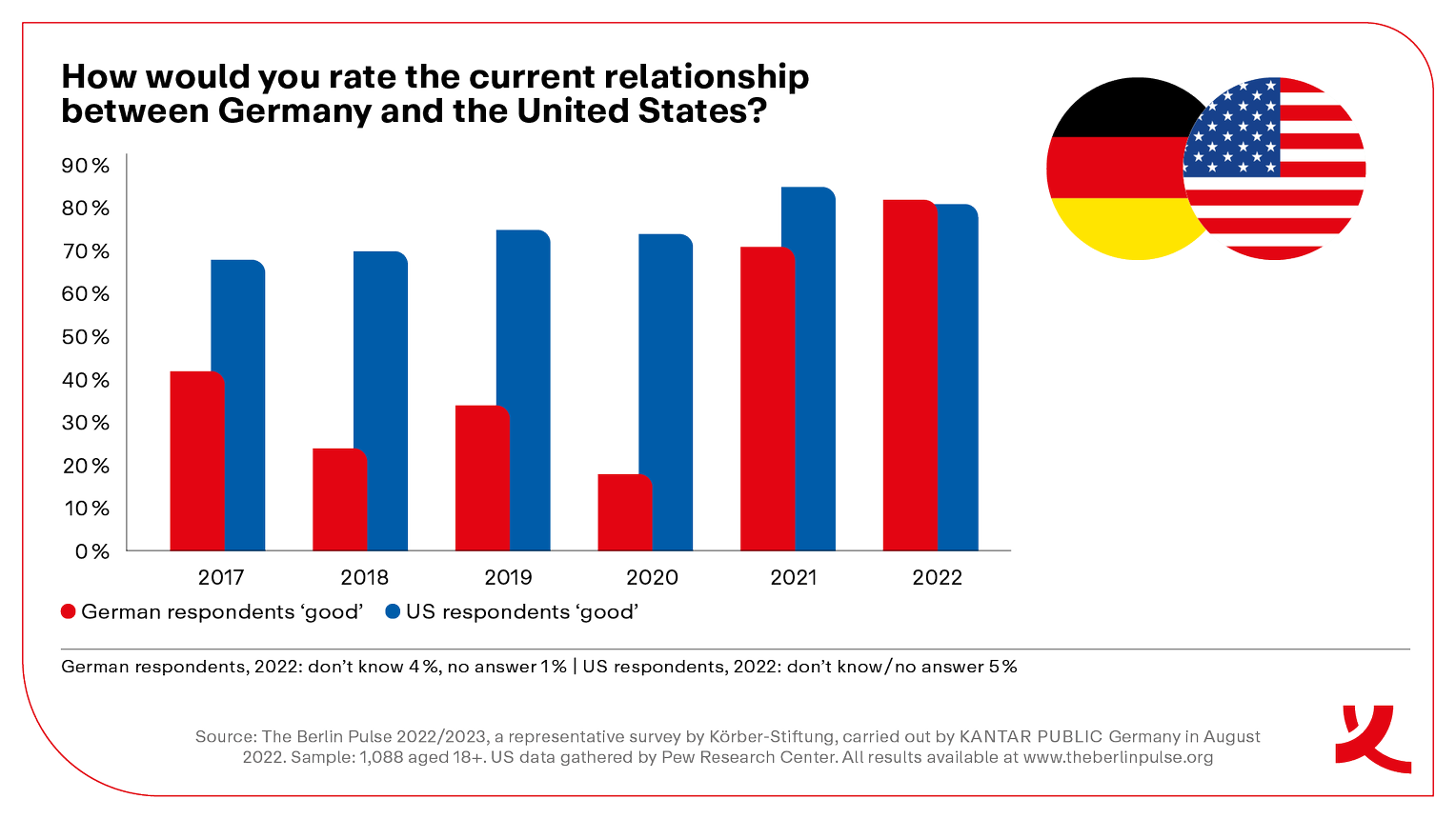
China’s growing influence is viewed increasingly negative by the German public (59 per cent), only 7 per cent see it as positive. In line with concerns about China’s global influence, around two-thirds of Germans (66 per cent) are in favour of becoming independent of China, even if this leads to economic losses. However, the scepticism towards Beijing is not reflected in a tangible threat perception: 42 per cent see China as a military threat to Germany’s security. The situation is different in the USA, where 90 per cent see China as a military threat to US security.
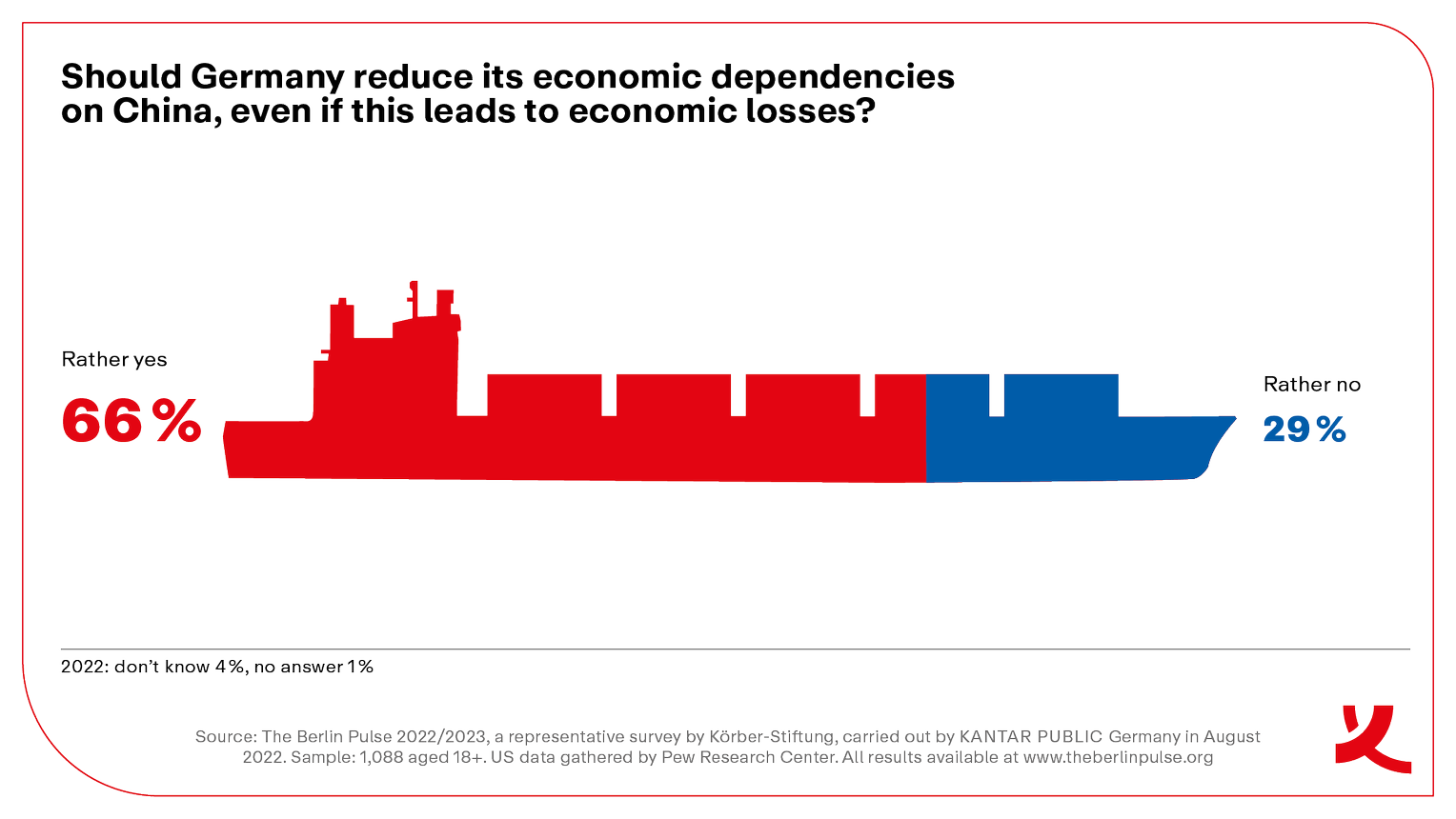
The Berlin Pulse is our annual foreign policy report and survey, which is published on the occasion of the Berlin Foreign Policy Forum.
Since 2014, we have regularly asked Germans about their attitudes to German foreign policy. The representative survey was conducted by Kantar Public in August 2022. On our behalf, 1,088 citizens aged 18 and above were surveyed. The survey in the USA was conducted by Ipsos for the Pew Research Center in July and August 2022.
